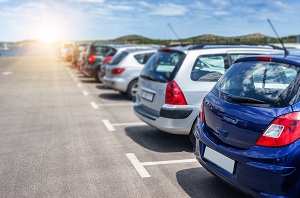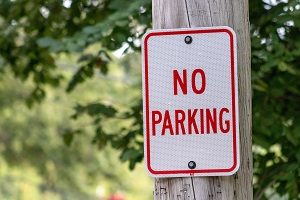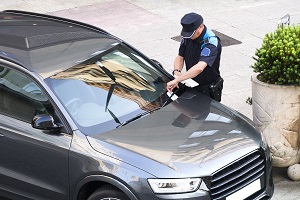America has a vast car market. Nowadays, it is much easier to purchase a car — whether brand new or used. With access to cars within more people’s reach, it comes as no surprise that many opt to drive their own vehicles than take the bus or subway. And while it is good that more people can afford such a luxury now, it does give rise to parking troubles, particularly within planned communities. Here’s how to deal with HOA parking issues.
Addressing HOA Parking Issues Within the Community
Parking is one of the greatest sources of headaches for an HOA community, particularly the HOA board. Homeowners who have multiple vehicles and lack parking space sometimes resort to leaving their cars out on the curb. This can be a huge inconvenience for their neighbors. Worse yet, when the homeowner is called out for violating HOA parking regulations, they rarely have a gracious response. They either lash out or ignore the warning altogether.
Common HOA Parking Regulations
Proper parking management largely relies on whether the association has a good HOA parking policy in place. The community’s parking rules can either solve or exasperate any HOA parking issues, but not all HOAs can have the same set of parking regulations. The type of planned development and the size of the community, as well as the availability of parking spaces, can affect how an HOA sets parking rules. Nevertheless, some policies appear in most HOAs’ CC&Rs more than others.
Here are some sample HOA parking rules commonly found in associations:
1. Allowed Vehicles
 A majority of HOAs have restrictions on what type of vehicles are permitted to park inside the community development. Prohibited vehicles usually include commercial vehicles, trailers, RVs, and boats.
A majority of HOAs have restrictions on what type of vehicles are permitted to park inside the community development. Prohibited vehicles usually include commercial vehicles, trailers, RVs, and boats.
These vehicles tend to be bulky and unappealing to the eye. Given that an HOA is responsible for maintaining curb appeal to increase property values, such a restriction is understandable.
2. Parking Duration
Most HOAs also impose a limit on the duration homeowners can leave their vehicles parked in an area other than their own properties. The purpose of this time limit, which varies from association to association, is to prevent people from abandoning their vehicles within the community. Other times, an HOA may allow commercial or recreational vehicles but only for 24 hours or something similar.
3. Parking Locations
Regulating where residents can park can be a bit tricky, especially if the HOA does not reside in a gated or private development. Depending on this, most HOAs can dictate whether it is okay to park in the driveway or whether there are designated spots for visitors.
Can an HOA Restrict Street Parking?
 When it comes to homeowners association parking rules, the scope of an HOA’s authority over street parking depends on where it is located. Let’s break it down below:
When it comes to homeowners association parking rules, the scope of an HOA’s authority over street parking depends on where it is located. Let’s break it down below:
- Private streets. For the most part, an HOA has complete control over private streets, i.e. streets or roads that are not for public use and are under the association’s ownership. This is typically the case for gated communities or private developments. An HOA can impose parking regulations on both residents and non-residents on private streets, provided that these rules coincide with state laws and the HOA’s governing documents.
- Public streets. Generally, an HOA does not have jurisdiction over public roads, which are roads open to the public and maintained by the government. This is because these roads are the local government’s responsibility, meaning any violations relating to them are covered by the police. If an HOA encounters problems with a public street within the development, it is best to contact local authorities. Some HOAs have stipulations in their governing documents granting them power over public roads. In this case, consult with an attorney on whether enforcement is allowed.
HOA Parking Enforcement
Enforcing HOA parking restrictions can be just as difficult as managing them. Homeowners are often less-than-welcoming about parking regulations, which is why an HOA must do everything it can to make sure enforcement is uniform and seamless. Here are some tips to improve HOA parking issues and rule implementation:
1. Post Signs
 It is important to have appropriate parking signs posted where they are applicable. If a particular curb does not have a sign prohibiting parking, an HOA should not be surprised when residents are found parked there.
It is important to have appropriate parking signs posted where they are applicable. If a particular curb does not have a sign prohibiting parking, an HOA should not be surprised when residents are found parked there.
It is also a good idea to signify fire lanes by painting them red so that everyone knows not to park in that spot. An HOA can’t expect its members to follow the rules if they are unaware of them in the first place.
2. Keep Residents Updated
Similar to the first point, homeowners have no way of knowing about parking rules if the HOA fails to notify them. A responsible HOA keeps its members informed and up-to-date. This usually applies to new policies or changes to current ones, but it is also good practice to include a separate list of the HOA’s parking rules in welcome packages for new residents. Sometimes, knowledge of the rules is all that is needed to solve common HOA parking issues.
3. Give Warnings
 Homeowners who either periodically or repeatedly violate parking regulations must be given warnings. They may not even be aware that they are breaking the rules in the first place.
Homeowners who either periodically or repeatedly violate parking regulations must be given warnings. They may not even be aware that they are breaking the rules in the first place.
Other times, they think it is alright to violate the rules because “everyone else does it anyway.” Send them an HOA parking violation notice for the first couple of instances before escalating to a more serious course of action.
4. Prepare Alternatives
Simply prohibiting parking in specific locations can draw the ire of homeowners. Along with these restrictions, an HOA must consider how homeowners feel and provide them with a list of parking alternatives. If the HOA restricts parking everywhere, HOA parking issues and violations are bound to spike.
5. Towing as a Last Resort
An HOA must not immediately jump to tow vehicles in violation of parking regulations. Apart from being expensive, towing can sometimes sow more discord between homeowners and the HOA. If possible, only use towing as a last resort, after all else — communication and sending warnings — fails.
However, should it come to that, the HOA must remember to give proper notice to the homeowner involved. State laws also have procedures in place for towing vehicles. For instance, in California, towing is only considered legal when three specific steps are followed.
Resolve HOA Parking Issues with Ease
When it comes down to it, dealing with HOA parking issues does not have to be a challenge. There are plenty of things an HOA can do to resolve parking concerns within the community. A good HOA addresses these problems head-on by creating regulations, making sure they are known to all, and uniformly enforcing the rules.
If your HOA encounters difficulty in any aspect of community parking, feel free to contact an HOA management company like us for help.
RELATED ARTICLES:
- 9 Ways To Boost Community Curb Appeal
- HOA Smoking Problem: What’s Legal And What’s Not?
- 5 Tips To Help You Make Your HOA Drone Policy






